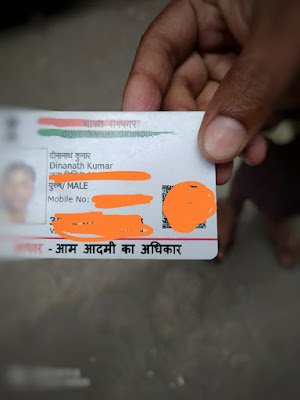Pandemic and Social Realities
After much social, political, and economic fermentation and
dramatic role of media on the top of grim; many are struggling for survival and
almost everyone is adjusting to the new realities brought on by the Covid-19
pandemic. The new changes have wider influences;
can be seen clearly from the workplace to the streets.
This post discusses a few things, our team experienced during the
relief work in Delhi.
Patriarchy,
Pandemic and Gender role flexibility
Social stratification along gender lines, in which power is
predominantly held by men, is common in Indian societies. Women’s formal
engagement in the economy is often invisible in developing settings. In a
family system, patriarchy means "rule of the father", where power is concentrated
in the hands of father/ husband or adult men, designating females and children
as subordinate.
Traditional gender roles cast men as strong, decisive, rational,
and protective while women are seen as emotional, irrational, weak, nurturing,
and submissive. The men who refused to recognize the role of women in the formal
economy, the same men are not in favor of their daughter’s education or
participation in skill development programs, the same men refuse to give the
basic rights to their wives or girl child, quoting “ unke samaj me aurat ka
bahar nikalna accha nahi samjha jaata”, “log kahenge aurat/ ladki ki kamayi
khata hai,” “ ghar se bahar nikalti hain tabhi to rape hota hai”, the very same
man is not comfortable to come out to collect ration ki,t for this job this man
need his wife or daughter, is it because he feels it is socially appropriate
for individuals of a specific sex ? The gospel he compiled for women “aurat or
ladkiya ghar ki izzat hoti hain’ he has right to tore apart at his convenient.
It’s been almost 10 days our team distributing ration kit to the
needy and 99% of them were the women, who come to collect the kits, the same
women who were meant to be at home before pandemic.
Pandemic
Propaganda and Person Identity:
Fake news in India has a big market; fake news spread through
social media in the country has become a grievous problem, with the potential of
it resulting in mob violence. Amidst grim situation, Indian minorities
experiencing social-economic discrimination and biases promoting unethical
environment and passive administrative response, slow or no action policy is
furthering lack of trust in government institutions and politicians. The divide
is so deeply vulnerable and poor living in shantytowns are worried, they are
perplexed which name they should use when to ask someone for help, our team is
experiencing this every day while distributing ration kits in the slum areas.
We got calls for help and mostly start with the name, emphasizing on surnames,
and continue with specifying religion. This is sad, this is pathetic actually,
and should be a matter of shame, if not for a politician, at least for a common
Indian like you and me it is a shame, we are failing as a society as an Indian.


Comments
Post a Comment